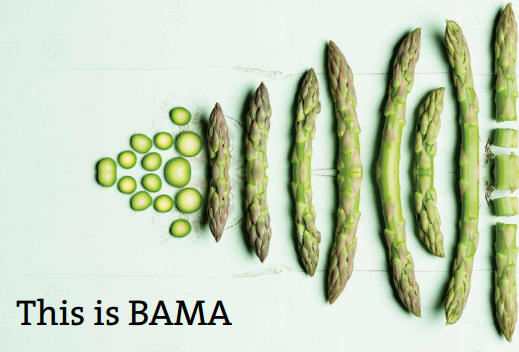BAMA going greener on banana imports
The banana and the potato are respectively the fruit and vegetable that BAMA Group sells the most of. Here, in the second part of our latest coverage of BAMA, we look at what the Oslo-based trading group is doing in regard to these high volume products.
Promoting the Norwegian potato
One of the largest projects in 2014 for BAMA Industry was the expansion of BAMA’s potato production site in Rygge, which was set to double its production capacity via an increase in area to 5,200 m2 by August 2015. BAMA is adopting a major focus on product and variant development and new technology to further promote the Norwegian potato.
Asked why BAMA had made this a priority, BAMA Group CEO Rune Flaen told ED that: “Potatoes are the largest product group volume-wise and an important category for BAMA, and they are a healthy product. Our strategy is to increase consumption, especially through product development (processed potatoes), new varieties and by inspiring consumers by marketing tasty ways of preparing potatoes.”
In its 2014 annual report, BAMA said one of BAMA Industry’s most exciting innovations last year was the a range of sous-vide potato products which helped boost potatoes sales.

Bananas: ad campaign brings 6% volume growth
The average Norwegian eats 16.5 kgs of bananas each year, making the banana is the most popular fruit in Norway and BAMA’s largest fruit category, representing 25% of its total fruit volume. In 2014, BAMA ran an ad campaigns that included TV spots with simple messages and information promoting bananas’ health benefits and versatility with a volume increase of 6% the result.
Bananas: Increases in sales on previous year
2014: Volume 6%, value 12%
2013: Volume 7%, value 8%
BAMA achieved this growth despite a tough year “reflected in more unstable international container traffic, with slower transports due to route changes, problems with profitability and stricter controls at EU borders.” The situation created “challenges in getting bananas ripened on time, and our ripeners have performed an incredible job every single day to ensure that bananas are shipped out the right colour,” BAMA said in its annual report.

Move to more rail transport
All BAMA’S bananas are imported from South American countries and BAMA says that together with its suppliers, it is taking responsibility for ensuring its production occurs in the most environmentally friendly and sustainable way possible. “All our suppliers are obliged to comply with international GLOBALG.A.P. (Good Agricultural Practices) standards for sustainability and food safety within farming and production,” it said in the report.
It has always transported bananas from South America to Europe by ship, a journey of about nine days. “For many years bananas were transported in container ships to Europe, and freighted onwards by lorry to Norway. In 2009 we changed our transport policy so that the containers were freighted by ship all the way to Norway. Lorries are only used from the harbour in Oslo to our ripening plant. The switch reduced CO2 emissions equivalent to the average annual emissions of 16,800 private vehicles.”
“Rail transport is generally held to be the most environmentally friendly way to transport goods. Our target is for 50% of our incoming transport to be made via inter-modal solutions by 2020. Today this figure is around 12%. When the bananas are ripe and ready to be transported to various parts of Norway, they are increasingly conveyed by rail. In 2014 more than half of our freight was transported to Northern Norway by train. In Costa Rica around 40% of the bananas that Dole produces are transported by train. This form of transport is estimated to be 35% more efficient than road transport,” BAMA said.
Success with ready-to-eat avocados and mangoes
BAMA started offering avocado and mango in 2005 and these products have been a huge hit with its consumers in Norway, where annual per capita consumption greatly outstrips that in the Netherlands and Germany, for instance. BAMA’s avocado sales have increased 400% in volume since then and those of mangos by 600%.
It began offering ready-to-eat avocados and mangoes in 2008, with similar success. Its sales of ready-to-eat avocadoes reached just over 6,000 tons last year, up 170% in 6 years. “Nature’s Pride, our supplier, has been the key to this ripening success,” Flaen said. The Dutch company’s new terminal in Rotterdam is home to nearly 50 ripening sheds, ensuring “the avocados that arrive in Norway have just the right tenderness and appeal.”
sources: BAMA Group 2014 annual report information and phone interview with BAMA Group CEO Rune Flaen
Read part 1: Fresh cuts and berries among priorities for BAMA


